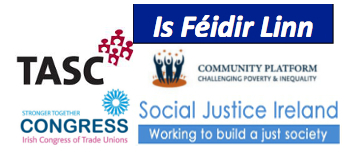Women in Politics: The Arguments
Q: Political representation should be about merit. Shouldn’t the best candidate for the job win, regardless of gender?
A: The current system is not based on merit, and does nothing to ensure that the most skilled candidate wins out. Rather it is full of barriers that hinder women from receiving their fair share of seats. Special measures to increase gender balance would only serve to compensate for these barriers and help to create a more level playing field, which increase the numbers of meritorious women standing in elections.
Q: Wouldn’t these measures just deliver ‘token’ women, who would be less respected than politicians who ‘made it on their own’?
A: Firstly, no politician, male or female, makes it on his/her own. Anyone who makes it through the system has experienced favour from the party leadership, been mentored by a political notable, has the advantage of family connections, or has benefited from some other advantage.
Secondly, any woman candidate, however she was selected, has to prove that she‟s capable of winning votes, just like any other candidate, and if she wins a seat she does so in her own right, just like any other candidate, and has earned the same amount of respect.
Q: Isn’t it undemocratic to introduce special measures for one group?
A: Not at all. Women candidates, like men, would still have to convince the electorate to vote for them. Having gender balance measures wouldn‟t „hand‟ seats to women. Voters would still have complete freedom to choose who they vote for and in what order. In fact, introducing these measures would increase voter choice, by offering a more diverse range of candidates to choose from.
Q: Shouldn’t the voters be the ones to decide who our politicians are?
A: Absolutely, and the proposed measures would not change this. The reality is that political parties are the ones who control which candidates are put before voters in the first place, and they have an overwhelming tendency to put forward male candidates. In fact, when given the chance to elect women, Irish voters vote for women in equal measure to men. Therefore, it is the parties who are creating the imbalance and subsequently this is where the change must take place.
Q: Why do we need more women in politics?
A: Women are 50% of the population, but have never been more than 14% of TDs. Our public representatives exist to represent the people, but we have only ever had a system which is anything but representative.
This is an issue of democracy. Or rather, the current situation is a democracy which is incomplete. According to the United Nations Committee on the Elimination of All Forms of Discrimination Against Women (CEDAW):
“the concept of democracy will have real and dynamic meaning and lasting effect only when political decision-making is shared by women and men and takes equal account of the interests of both.”1
Q: Why are women not entering politics if they have equal access - what exactly are the barriers that are discouraging them?
A: This question was explored extensively in the 2009 Oireachtas reoprt on Women’s Participation in Politics. The findings of the report echo international research on the subject which shows that women face similar challenges throughout the world when it comes to entering politics. The five main factors the report revealed have been dubbed “the five C‟s”. They are as follows:
- Childcare – women are more likely to have this responsibility, and political systems do not facilitate those with caring responsibilities.
- Cash – women have less access to resources than men, in particular the resources needed to run a political campaign.
- Confidence – women are less likely to put themselves forward for selection in political parties.
- Culture – the prevailing masculine culture and image of politics is a powerful barrier for women.
- Candidate selection process by the parties themselves – this process has been identified as posing a significant obstacle to women‟s political participation.
Each of these challenges needs to be addressed in order to substantially increase the numbers of women entering Irish politics.
You can download the pdf of these questions here
Further information:
- National Women’s Council of Ireland discussion on political equality and their Submission to the Review of the Electoral System for the Election of members of Dáil Eireann in December 2009
- Debate on the Political Reform website.
- The 5050 Group blog
- Discussion of women’s representation in Europe on the European Women’s Lobby site.
1 CEDAW Committee, General Recommendation no. 23 (1997).

